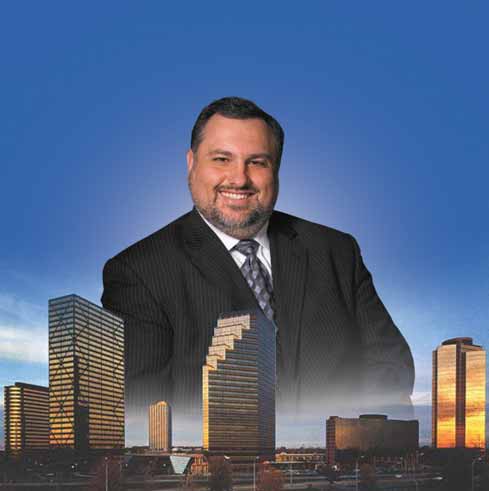Irv Lowenberg: A Mentsch In City Hall
When the phone rings on Shabbat in Irv “Moishe” Lowenberg’s home, it’s very likely to be the Southfield, Michigan fire or police department relaying something that’s happened of which city officials should be aware. While enjoying time with his family and the scrumptious meal his wife, Chai, has prepared for the family and guests, Lowenberg listens to the update on the answering machine. As the treasurer, Lowenberg is one of two popularly elected officials involved with the city’s day-to-day operations.
Lowenberg, forty-one, has a somewhat unlikely background for a political figure helping to oversee a major Midwest commercial center. He grew up on New York’s Lower East Side and in Brooklyn, where he attended Yeshivas Zichron Melech and the Mirrer Yeshiva. Lowenberg went on to attend Baruch College while learning at Mesivta Tiferes Yerushalayim (MTJ), under the auspices of Rabbi Dovid Feinstein. At the time Lowenberg was one of just two students shuttling between college and MTJ.
Lowenberg takes pride in having grown up on the Lower East Side, the neighborhood of the world-renowned posek Rav Moshe Feinstein.
Another figure Lowenberg recalls fondly from the neighborhood is Sheldon Silver, the current speaker of the New York State Assembly who has represented Lower Manhattan for the past few decades. “It was nice to see a Jewish person in leadership, being active.”
In Baruch, Lowenberg was active in student government. He remembers following politics closely from a young age, reading the newspaper daily and delighting especially in the movements of Jewish politicians like former New York City Mayor Ed Koch and former Israeli Prime Minister Menachem Begin.
After college, Lowenberg married. Business became Lowenberg’s primary focus while working on Wall Street as an investment banker. A few years after marrying, the Lowenbergs went to visit Chai’s sister, who had moved to Southfield. They were immediately impressed with the friendly and close-knit community. The price of admission didn’t hurt, either. “What you got for the money was phenomenal,” Lowenberg remembers about the city’s housing market. Though Lowenberg did not have a job lined up yet, he and his wife left Brooklyn in 1995 to join the Southfield community.
Lowenberg eventually got into the mortgage business, but some ten years later another opportunity arose that combined the three things Lowenberg loves most: business, politics, and helping people through community-geared activity. Sidney Lantz, the city’s previous treasurer, was retiring after thirty-two years in the position. Lantz’s children attend Lowenberg’s synagogue, and Lantz encouraged the latter to run for the job. “He took me under his wing,” Lowenberg says, noting how the two shared hopes for Southfield’s future. “Everyone likes to sit and complain about how things are run in a municipality. No one wants to step up. This was an opportunity.”
Lantz, who still serves on the City Council, remembers meeting Lowenberg and being impressed with his knowledge and common sense. “He’s a smart man in finance. So I took to him,” he says.
Lowenberg began working on his first political campaign for the 2005 election. A staple of his campaign was promising lower taxes; Southfield had one of the highest property tax rates in the state of Michigan. At first he had signs printed boldly proclaiming the promise, with his name placed in a lower corner. In the course of campaigning, he encountered an elderly Jewish woman who said, “You know, if you take the ‘Lowenberg’ and put it over the lower taxes it will sound much better.” To which Lowenberg responded, “I owe you my campaign.” The “Lowenberg for Lower Taxes” slogan stuck, and he won by a 10-percent margin (last year he was re-elected with 65 percent of the vote). And he was true to his word: since Lowenberg took office, Southfield’s residential property taxes have fallen more than 30 percent.
Jim Scharret, Southfield’s chief administrator and a veteran of the city’s day-to-day management team, remembers Lowenberg’s excitement from the very beginning of his assuming the position of treasurer. “He was enthusiastic, had a lot of new ideas, and wanted to have a good relationship with the administrative staff because he knew we had challenges and he wanted to be a full participant in solving the problems,” Scharret says.
With twenty-six million square feet of office space, Southfield is a major commercial center for the metropolitan Detroit area. Lowenberg’s business background would prove helpful in managing the city’s finances. He oversees about $430 million in funds and pension systems, in addition to Southfield’s $150 million annual budget.
Lowenberg’s predecessor certainly approves of his work. “He has done very well for us,” Lantz says. “His investments are good. He has the intuition [to know] where to put money for our people and our city. He’s already made us a fortune, and I think he’s accomplished a reputation.”
Lantz also commends Lowenberg’s stature as a politician. “Irv is one of the best public servants that I have ever met,” Lantz says, after reflecting on his own decades in government. “He understands the feelings of people. He understands what the whole recession is all about, and the foreclosures. He has ideas and he tries to help. He’s brought forward many, many decisions that have helped people.”
As an Orthodox Jew, Lowenberg occasionally has to juggle additional challenges than do most of his government colleagues. When some at the office point out that he doesn’t ever come in on Saturdays, he tells them he often has to work harder on Saturdays than during the rest of the week, fielding complaints from members of his shul about goings-on in the city, ranging from sewer issues to kids scribbling their names in pavement the city recently put down. “You know how people are on Shabbos. That’s their chance to get it off their chest, for the most part . . . I become the one-stop shop. I become their customer-service center.”
But Lowenberg doesn’t mind. “The most important thing is that people feel represented and there is someone looking out for them.”
“I have to live up to a higher standard than the average politician.”
Lowenberg also enjoys being involved in his shul, Shomrey Emunah. So much so that he became gabbai and a vice president of the board two years after moving to Southfield. Then, in 2000, he became president. Whether it’s at shul or City Hall, he finds success in politics boils down to being able to deal effectively with different types of personalities.
Lowenberg’s political position also provides him with some unique opportunities to interact with other Jews. Recently, he was the only treasurer in the state to endorse a candidate for treasurer of Oakland County (of which Southfield comprises 10 percent). The candidate is a Jew who also happened to be in the process of becoming more observant. During election night, they were together until four o’clock in the morning reciting Tehillim as the results came in (he won).
Lowenberg says he appreciates that his position allows him to practice tikkun olam, to help make his community a better place. He gets much satisfaction from overseeing funds for one of the region’s few municipality human services departments that provide counseling and other community services, for instance.
Lowenberg, who always wears a yarmulke and whose three daughters attend Bais Yaakov Detroit, says he sees no conflict between any of his political stances and his Orthodoxy. To the contrary, he tries his best to harmonize them.
“I want to be able to sleep at night knowing that I’m doing the right thing . . .” He is mindful, however, not to impose views on others. He says his Orthodox views are mostly in the background and that people are respectful of his religious needs. While he sometimes runs into logistical challenges—like having to bring his own kosher meals to meetings—he finds these relatively easy to manage in light of the personal satisfaction the position provides.
Being Jewish, he says, offers him a tremendous opportunity to make a Kiddush Hashem. “I feel I’m representative of the community, that people look at me and say, “That’s what a Jew is all about.” I have to live up to a higher standard than the average politician. I have to watch everything that comes out of my mouth and every act that I do that should be for good and not be a Chillul Hashem.”
Scharret, the city administrator, thinks that Lowenberg’s Judaism is an asset at City Hall. “I think it’s very helpful because we are a diverse community and he brings a perspective that’s important,” he says. “He has an in-depth knowledge of an important part of our population—and hopefully an expanding part.”
Even if it means he’ll have to work a bit harder on Saturdays, any more Jews headed for Southfield would probably delight the city’s treasurer.
Ben Ehrenkranz is a graduate student at Yeshiva University in New York City.


